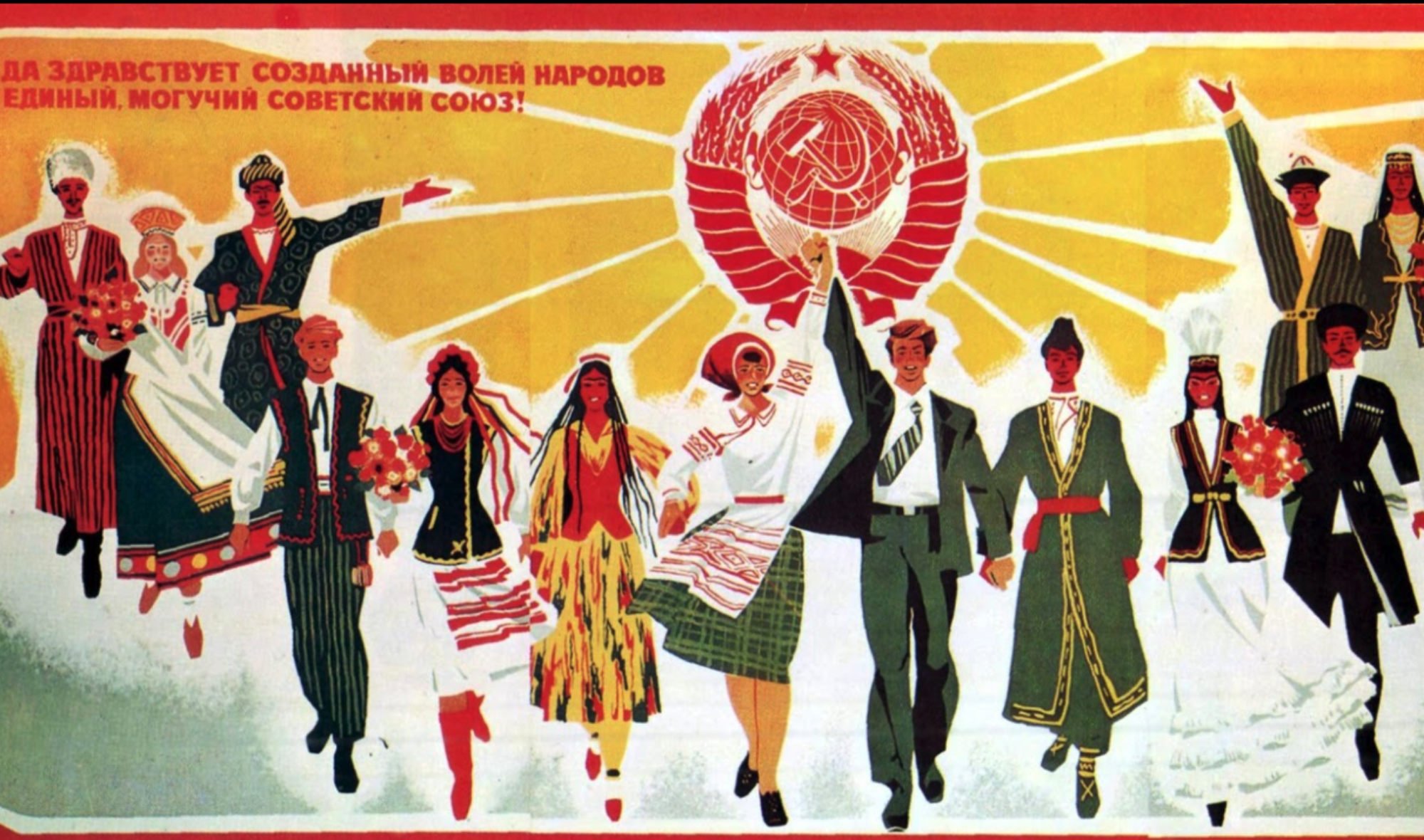Going into this reading, I am sure we were all probably not surprised to find out how heavily involved the Soviet government was in theatre. We’ve already seen countless examples of government officials meddling in cultural practices. On page 83, Fowler says, “The GPU was actively involved in culture not only to suppress but also create a Soviet artistic culture.” In this chapter, we see the great lengths the Soviets go to suppress bad culture and create their own, but was it worth it from a Soviet perspective to pour all these resources into censoring theatre (or anything else related)? Personally, I’ll say yes since theatre can have such a profound impact on society. When it is good enough, people start to really discuss the contents. What does everyone else think?
Hujum
Chapter 2 is all about the Soviet attacks against a centuries old tradition. The chapter dives into the tactics the Soviet government used to accomplish this goal. So why start a war against veils? It is abundantly clear that this is not something that can be done overnight. Even the Bolshevik analyst quotes at the start of the chapter acknowledges that it is not reasonable to expect this tradition to disappear quickly. This is yet another instance of the Soviet government acting in its own best interest, but is this a goal too ambitious to achieve? What are some of the issues the Soviet government encountered along the way? What did the veils represent for Uzbek women? These are just some questions to think about as we begin our discussion.
The Plan
Reading through today’s selection in “Stalin’s Forgotten Zion,” I noticed that we seem to get a full picture of Stalin’s plan concerning the diverse nationalities in the Soviet Union over time with the Jews as the example. Both Lenin and Stalin seemed to have believed that religion and national identity would eventually fade away completely as the Soviet culture became more dominant. In the reading, we see the Kremlin start out by “respecting” the Jews to completely forgetting all about the JAR by the time we reach page 71. Instead of the Jewish nationality fading away, the government seems to just close its eyes and pretend it doesn’t exist. This seems to me like the perfect example of why Lenin and Stalin were completely wrong. Culture and the sense of nation do not just disappear. It seems to me that the Soviet government just uses the idea of the JAR as a public relations tool for the rest of the world. Does anyone else see that too, or am I delusional on a Sunday night? We know the Soviets did not actually care what happened to the Jews since Weinberg points out that the government heavily promoted the program, but did not actually provide any assistance or prepare the settlers for the harsh conditions of their new home. Is this evidence that Stalin knew a nationality could only be suppressed, not eliminated?
Racial Hierarchies
As I was reading through Chapter 8, the creation of the racial hierarchies within Germany’s newly conquered lands made me think about Soviet efforts in the same place. We have talked the last few classes about the Soviet Union’s struggle to organize people in the borderlands (and throughout the Soviet Union) based on nationality. When the Germans take control, it seems as though they are doing something similar, but on a much more complex level. Although the Germans face some challenges, they seem to be much more organized with the way they undertake this huge project. I do not want to say they are successful in achieving their goals, but it seems they get closer than the Soviet government. Is this because the Soviet’s are strictly looking at things from a primarily economic view? Obviously the Germans are more concerned about actually separating (or eliminating) certain groups. Hope this post makes some sort of sense.
Lenin’s Vision
Although it is really short, Lenin’s speech at the All-Russian Navy Congress really provides a window into how the Soviets will handle the all important question of culture that we started discussing last week. The date the speech was delivered, December 5, 1917, is something we should keep in mind in our discussion of the speech. This is just months after the October Revolution. At this point, I think it is safe to say Lenin had to be extremely careful to say the right things, even if that meant there had to be some compromise with his actual views. This speech spreads a message of unity while also still seemingly acknowledging unique cultures (ie Ukraine). So here is where my question comes in: In the speech Lenin says, “We are told that Russia will be divided, will split into separate republics. We should not be afraid of this. No matter how many separate republics are created we shall not be frightened by it. It is not the state frontiers that count with us but a union of toilers of all nations ready to fight the bourgeoisie of any nation.” Do you buy this? Is it possible to unify to “fight the bourgeoisie” without erasing some (or all) cultural elements that are not “Soviet” (when that becomes a thing)? Does Stalin’s speech contain a more thorough plan to carry out what Lenin is promoting, or is it something different?

